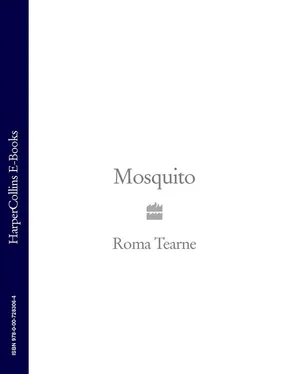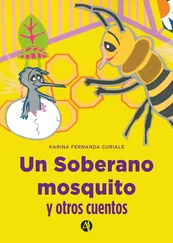‘The girl hardly speaks,’ the teacher had told him afterwards. ‘Since her father was murdered she has become silent. The mother has given up trying to make her talk. All she does is draw, draw, draw.’
But on that day she had spoken to Theo and later, on one of his early-evening walks along the narrow strip of beach behind the house, he saw her again. He had smiled slightly, registering her good looks, and remembering the story of her father, he waved. But she seemed to vanish into the darkness. After that he kept seeing her and he guessed she lived nearby. Then Sugi caught her in the garden. She was drawing his stone lions. Sugi began complaining loudly.
‘Sir, sir, these local children are pests. They’ve started coming into the garden again. We need to get rid of them or they will multiply!’
Surprised, Theo came out and, recognising her, asked her name. Then he invited her, in spite of Sugi’s protest, to come over at any time and draw. This had been nearly three months ago. She never called him anything except Mr Samarajeeva. He supposed, wryly, that this was out of a sense of respect for his age. But she came back, again and again, and, if she did not appear for a few days, he became inclined to drift into bad temper.
‘Can I go now?’ she asked, breaking into his reverie. ‘I want to draw the house from over there.’
She had been with him since breakfast.
‘Won’t you be late for school?’ he asked. ‘Does your mother know you are here?’
‘No,’ she said, disappearing around the side of the house. Her voice reached him from another part of the garden, vague and indistinct. ‘No, she’s out. And I’ve finished the jobs she gave me so I can go straight to school from here.’
Theo shook his head, amused in spite of himself. The manservant gave him a look that said clearly, ‘I told you, these local children are pests.’ But she’s different, thought Theo.
At first she came only once a week, barely speaking, staying further back in the garden. But as she grew bolder she seemed to be there all the time. Then, one day, out of the blue, she showed him her notebook for the first time. The sketches were all of him, delicate, and with a clear unwavering likeness. Startled, he took down his book of Picasso drawings and talked to her about the artist. After that she began to talk to him.
‘I will be seventeen in three months,’ she said.
On another afternoon she told him about her brother Jim. He was only eighteen months younger. She told him, they were not close.
‘It is our karma,’ she said solemnly. ‘We have brought it into this life.’
Their father, she said, had known most of this long before the astrologer came to visit. He told their mother, soon after the birth of Jim, he had seen it in a dream; the children would never be close. He could see it written on their faces, he had said, the girl child, and his infant son. Their mother, hearing this pronouncement, had begun wailing. After all her labours was this the future? But their father told his wife sternly to stop her noise. Be thankful, he said, for the fact that both children were healthy. After puberty, he suspected, after they came of age, they would cross a great expanse of water, leave Sri Lanka. Go to mainland India even. It would be a good thing, he had said, for peace in this country was always uncertain. Thus had her father predicted, long before the astrologer came to plot their horoscopes, walking up the steps of the house. With his saffron robes and his sandals dusty with beach sand, and his black umbrella faded with the heat. Their father, not foreseeing his own death in the riots of the following June, felt the future of his children grow large in his own mind.
How long was it before she realised the strange masculine world inhabited by her brother was not for her, wondered Theo. Was it when she was still small? Did her understanding come, as all unshakeable beliefs do, not at any given moment but slowly, like seawater seeping into a hole dug on a beach? Lucky Jim could pace his domain freely, marking his undisputed territory, certain of his own image of the future. But what of Nulani?
Sometimes while her brother slept, before the father’s unpredicted death, when they were younger, Nulani told Theo, she would bend over Jim and smell the sugar-sweet baby scent of greenness on his skin, run her finger across an old scar that straddled the rounded grubbiness of his brown leg. Later when she was older, she told Theo, she stole a box of Venus B pencils (Made in Great Britain) from the house of their English neighbour, to draw her sleeping brother. But the neighbour found out and demanded she be punished for stealing. She returned the pencils; two of them were used and broken.
‘All right, Mrs Mendis,’ the neighbour, the Englishman, told her mother angrily, ‘I know it must be hard for you, with your husband dead. But “ render unto Caesar ” and all that!’
He had laughed, without rhythm. Nulani had wondered if that was how the English laughed. She knew she would not be allowed into the Englishman’s house again. She would not be able to play with his daughter Carol any more; she would never be able to touch her shining golden hair.
‘Why did you take them?’ her brother had demanded. ‘Render unto Caesar,’ he had said, sounding like the Englishman.
Nulani’s uncle came. Because her father was no longer alive, it was his duty to beat her with an ekel stick.
‘Render unto Caesar,’ he had said. They were ashamed of her. The whole family avoided the neighbours now, eyes cast down whenever the jeep drove them about, into the city, to the beach, shopping.
‘See what you’ve done to us.’
Nulani could see. She stopped drawing her brother when he slept. She just looked at him. Her little brother. She was his loku akka , his big sister. Her father had said they would not be close. But no one, she told Mr Samarajeeva, not even the astrologer, had said she would not love him.
And now she came here to draw. Arriving early, leaving late. Always talking. Transformed.
‘Child,’ Theo said suddenly now, drifting back from his thoughts and realising the time, ‘you’ll be late for school.’
When there was no answer he went to look for her at the back of the garden, but then he heard the gate click again.
‘I’m late,’ she called, grinning at him, hurrying off. ‘But I’m coming back!’
And she disappeared up the hill with a wave of her hand.
They swarmed so thickly that they might easily have been mistaken for smoke. Rising swiftly from the water-filled holes dug by the gem miners in their search for sapphire, the mosquitoes seemed suspended in reflected light. For a moment the holes appeared as mirrored surfaces, blue as the sky. Further out towards the coast the rainwater filled the upturned coconut shells, as they lay scattered across the groves. Here the beautiful female anopheles mosquitoes, graceful wings glinting in the sun, landed lightly and prepared to create a canoe of death for their cargo of eggs. The Ministry of Health sprayed the coconut groves with DDT to prevent outbreaks of malaria. The metallic smell drifted and mixed heavily with the scent of frangipani and hibiscus. There had been no epidemic for nearly five years .
Theo liked to spend the morning writing, but lately it had been difficult to concentrate with the girl present. She sat against a wall, almost in the bushes, drawing him. He had tried to make her come inside but she was stubborn and stayed where she was, far back along the veranda, crouching beside the lilies and the ferns.
‘How can you draw like this? You can’t see me,’ he had protested. ‘Why do you want to crouch so low?’
Читать дальше












